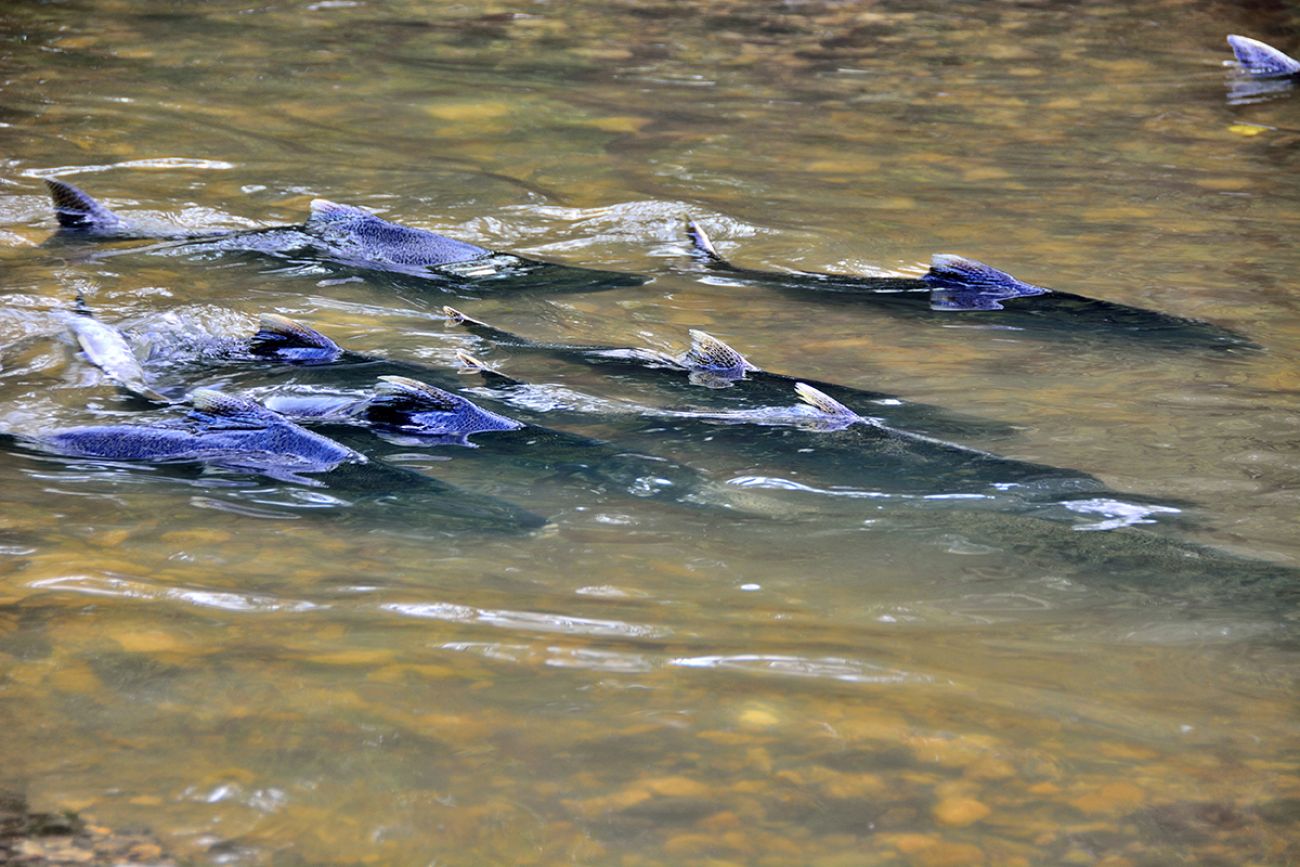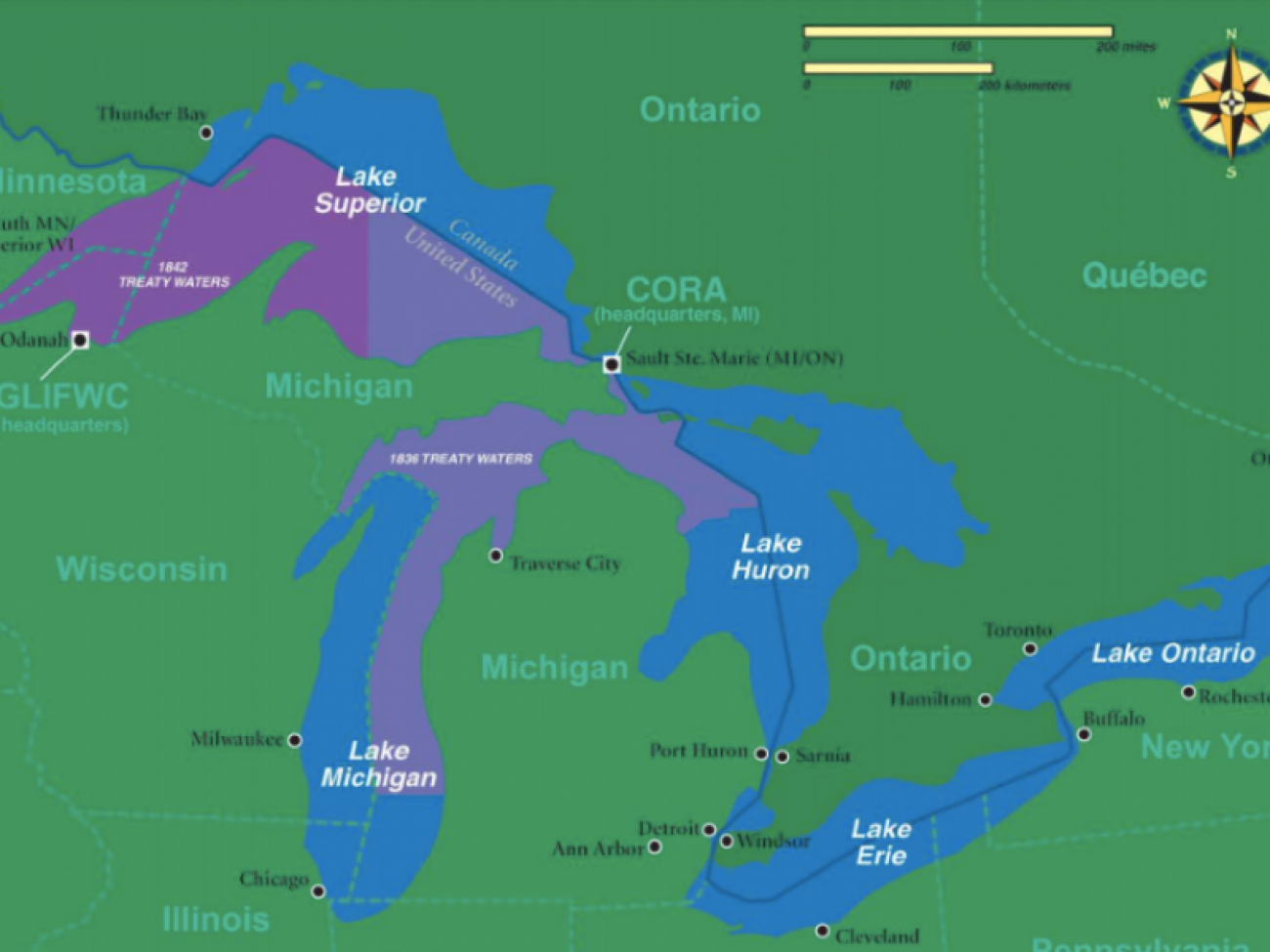Michigan anglers fear fishing deal with tribes could hurt their interests

Recreational and charter fishing groups want a voice in negotiations over Great Lakes fishing rights, a new sign of tension in negotiations between state regulators and tribes over waters that are dramatically changing.
In a Wednesday filing requesting U.S. District Judge Paul Maloney’s permission to intervene in a fishing consent decree, the group Coalition to Protect Michigan Resources expressed concern that tribes and the state are moving toward an agreement that would harm their interests.
Few details are known about the substance of the negotiations, because those involved have signed confidentiality agreements.
Related:
- Michigan: Reduce size limit for northern pike in some lakes
- Water test: Rending the Great Lakes food web
- Michigan Great Lakes: Expect lower waters, ample fish and a hot summer
But Dennis Eade, executive director of Michigan Steelhead and Salmon Fishermen’s Association, said the coalition believes the state and tribes are “ignoring the interests of recreational anglers,” and abandoning terms of a previous agreement “that have allowed tribal, commercial and recreational fishers to co-exist for decades.”
Michigan’s Department of Natural Resources spokesperson Ed Golder declined comment.
The legal maneuvering comes as the state, federal and five Michigan tribal governments renegotiate a 22-year-old agreement that apportions fishing rights across nearly 19,000 square miles in lakes Michigan, Huron and Superior.

The old agreement was set to expire in August 2020, but has been extended multiple times as parties struggle to cut a new deal.
Under the old decree, most of the whitefish in parts of the three lakes goes to five tribes, the Bay Mills Indian Community, the Little Traverse Bay Bands of Odawa Indians, the Sault Tribe of Chippewa Indians and the Little River Band of Ottawa Indians.
State-regulated anglers get most of the salmon, while lake trout are split roughly evenly.
“We do have a lot of members that, that is their livelihood,” said Beverly Carrick, interim director of the Chippewa Ottawa Resource Authority, a group that represents the tribes.
“That's the only job they have to feed their families.”
She declined to discuss the negotiations. But in a filing to the judge last month, negotiators reported they were “approaching consensus” on a new agreement, but needed more time to finalize details.
In 1979, the U.S. District Court ruled that Native American tribes that were part of the 1836 Treaty of Washington that ceded 16 million acres in the Upper and Lower Peninsulas have a viable treaty right to fish in the parts of Lakes Michigan, Huron and Superior.
Six years later, the state, federal government and Michigan’s tribes entered the first consent decree dividing fishing rights, which was re-settled in 2000.
In the past two decades, thought, invasive quagga mussels have dramatically altered the lakes and their fish communities, complicating the pathway to a new deal.
Simply put, said Mark Ebener, a longtime Great Lakes biologist who has studied those shifts, “the (quagga) have pulled the rug out from underneath the food web.”
The mussels blanket the bottom of lakes Michigan and Huron, stripping plankton and algae out of the water and robbing parts of the lakes of nutrients that fish need to survive.
That has reduced the overall biomass of fish in the lakes, leaving fishing interests competing for a slice of a smaller pie.
Annual harvests of whitefish, key to the livelihood of tribal and state-regulated commercial fishers, have declined from 6.3 million pounds in 2011 to less than 4 million in 2018.
The prized chinook salmon have plummeted in lakes Michigan and Lake Huron.
Twenty years ago, anglers caught 13 chinook salmon per 100 hours of fishing. Now, it is 8 salmon per 100 hours of fishing, said Jay Wesley, DNR Fisheries Division Lake Michigan Basin coordinator.
In 2000, there was about 20.9 million pounds of chinook in the Great Lakes and now it’s down to 5.5 million pounds, according to Wesley.
The main reason for the decline is that its main prey, alewives, have been dying out as invasive species filtering out the lakes’ nutrients.
According to Wesley, there were about 661 million pounds of alewife in 2000 but the population “hit rock bottom” in 2016 when the biomass was reduced to 110 million pounds before bouncing to 220 million pounds now.
And climate change is heating the lakes, adding more uncertainty about the future.
Whitefish spawn on ice-covered reefs each fall. When warm temperatures melt that protective layer, “wave action can really disrupt and kill the eggs,” said Ed Rutherford, a fishery biologist with the National Oceanic and Atmospheric Administration's Great Lakes Environmental Research Laboratory.
Ebener, who formerly worked as a biologist for inter-tribal organizations in the Great Lakes, said plummeting whitefish numbers pose an existential threat to tribal anglers. Many will go out of business, he said, unless they can get permission to fill their nets with other species such as walleye and salmon.
“Just focusing on one species, you’re not going to make it,” he said.
Negotiations are intensifying because “fisheries without a doubt have changed since the last consent decree was negotiated,” said Amy Trotter, executive director of the Michigan United Conservation Clubs, which is part of the coalition representing recreational and charter fishing interests.
Trotter said the coalition wants to become a party to the negotiations to ensure the new agreement reflects the changes in the Great Lakes as well as the recreational anglers’ needs.
In past negotiations, the state has worked alongside the coalition but Trotter claims now they’re being “dismissed, removed from the conversations, patronized or disregarded.”
Trotter said the request to intervene is “not to take away or diminish the state or tribes responsibilities or rights.”
“Ultimately, our concern is the fishery, the recreational side of it which is a driver for the economy,” Trotter said.
According to one estimate, recreational anglers contribute $2.3 billion to the state’s economy through gear purchases, hotel stays and other spending.
Michigan Environment Watch
Michigan Environment Watch examines how public policy, industry, and other factors interact with the state’s trove of natural resources.
- See full coverage
- Subscribe
- Share tips and questions with Bridge environment reporter Kelly House
Michigan Environment Watch is made possible by generous financial support from:
Our generous Environment Watch underwriters encourage Bridge Michigan readers to also support civic journalism by becoming Bridge members. Please consider joining today.
See what new members are saying about why they donated to Bridge Michigan:
- “In order for this information to be accurate and unbiased it must be underwritten by its readers, not by special interests.” - Larry S.
- “Not many other media sources report on the topics Bridge does.” - Susan B.
- “Your journalism is outstanding and rare these days.” - Mark S.
If you want to ensure the future of nonpartisan, nonprofit Michigan journalism, please become a member today. You, too, will be asked why you donated and maybe we'll feature your quote next time!






